
Tel: 301-652-9505

Tel: 301-652-9505
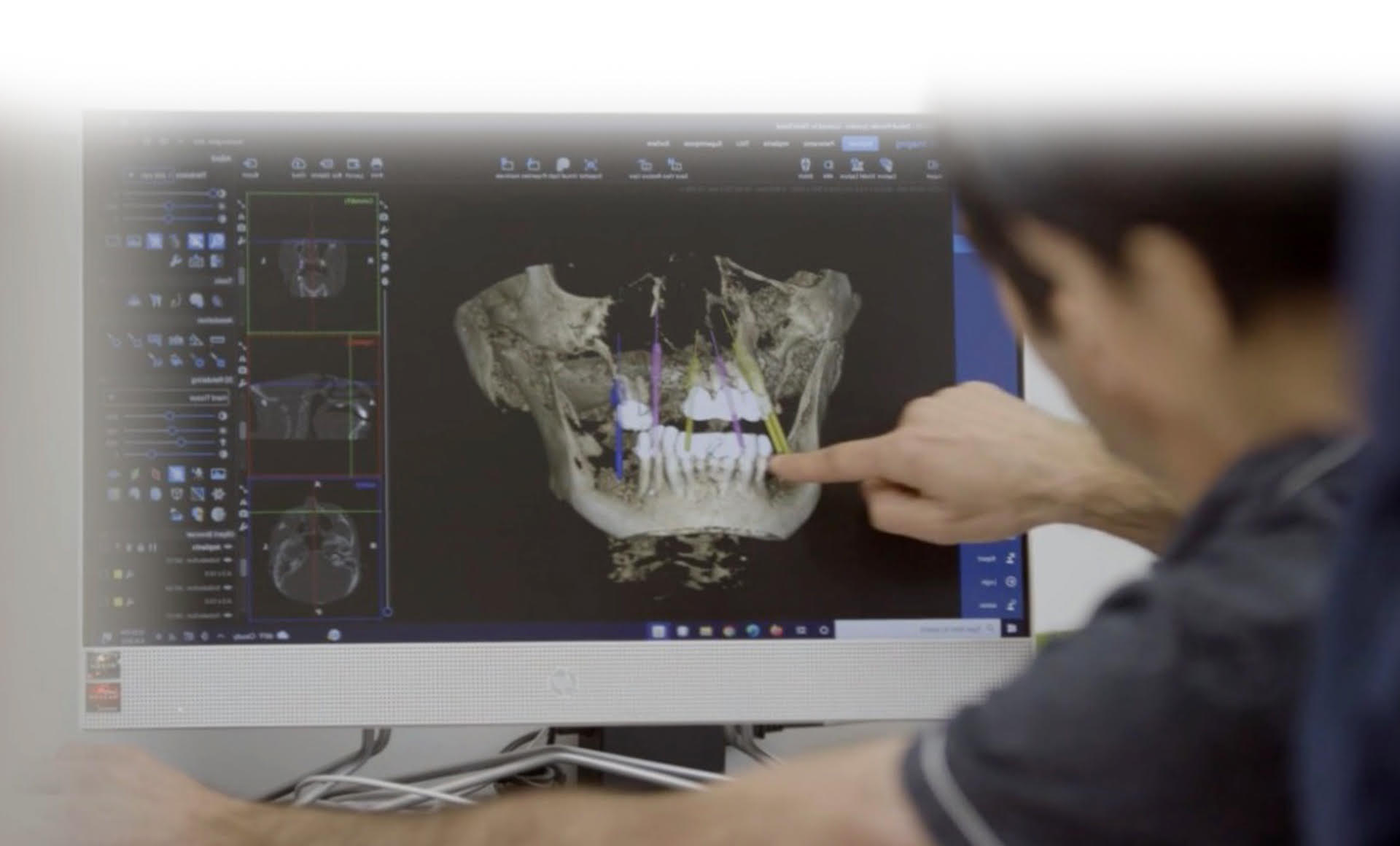
Single Implant placement is the treatment of choice when someone is missing or about to lose a tooth. With proper diagnosis and good timing, we can offer an immediate dental implant placement option on the same day as tooth removal. Dr. Obeid can perform the surgery without cutting the gum (flapless surgery), which means no sutures, minimum discomfort, little to no swelling and a comfortable recovery.
We can also provide a fixed temporary the same day. In short, you walk into Obeid Dental with a tooth and you leave with a tooth.
The process of an implant, in principle, replaces the roots of a tooth with a metal screw that is ‘implanted’ into the jaw. This can be done immediately after removal of the tooth or to replace a tooth that was previously lost to damage. A temporary replacement tooth is fabricated and used during the healing process. After the area is fully healed (typically 2-4 months), a crown is fabricated and attached to the metal base. The dental implant now functions as your natural tooth would, retained in the bone of the jaw. The complete implant process can take 3-5 months depending on the complexity of the clinical situation. Dr. Obeid will take the time to explain the all steps of the procedure at the consultation visit.
Single Implant placement is the treatment of choice when someone is missing or about to lose a tooth. With proper diagnosis and good timing, we can offer an immediate dental implant placement option on the same day as tooth removal. Dr. Obeid can perform the surgery without cutting the gum (flapless surgery), which means no sutures, minimum discomfort, little to no swelling and a comfortable recovery.
We can also provide a fixed temporary the same day. In short, you walk into Obeid Dental with a tooth and you leave with a tooth.
The process of an implant, in principle, replaces the roots of a tooth with a metal screw that is ‘implanted’ into the jaw. This can be done immediately after removal of the tooth or to replace a tooth that was previously lost to damage. A temporary replacement tooth is fabricated and used during the healing process. After the area is fully healed (typically 2-4 months), a crown is fabricated and attached to the metal base. The dental implant now functions as your natural tooth would, retained in the bone of the jaw. The complete implant process can take 3-5 months depending on the complexity of the clinical situation. Dr. Obeid will take the time to explain the all steps of the procedure at the consultation visit.
Immediate implant placement, immediate implant loading, same day implants, or how about teeth in a day? These are all different descriptions for the same procedure that involve taking a tooth or multiple teeth out, placing a dental implant in the same day without waiting for the area to heal from the extraction and in some cases place a fixed temporary (not permanent restoration) in the same day. It can be done for one tooth, multiple teeth or the full mouth.
Dr. Obeid, a Board-certified Prosthodontist, has been doing Immediate Implant placement on a routine basis since 2001. The procedure has evolved and grown more sophisticated as years progressed. It gained more popularity and public awareness when a mega-financial company called Clear Choice started to acquire dental offices and spend millions of dollars on an ad campaign that championed the Teeth in a Day concept.
The result was commercial success that provided a ‘one size fits all’ treatment. At Obeid Dental we have been perfecting this immediate loading for 20 years and offer a custom, tailored approach for each case because quite simply, one size does not fit all. The concept of all on 4 implants can’t work for everybody. Some need 6 implants, some 8 and some can benefit from saving their teeth and getting conventional dentistry.
Dentistry is part science and part art. Make sure you choose the right specialist for this complex and highly individualized treatment.
At Obeid Dental, we have a pointed advantage of having all the steps done by Dr. Obeid. That includes tooth extraction, surgical implant placement, the immediate fabrication of the fixed temporary bridge and any follow up appointment. You get highly Individualized from a deeply skilled and experienced specialist that you can trust, start to finish. An added bonus is exceptional quality from of the state of the art in-house dental lab and master technician who will complete your final restoration.
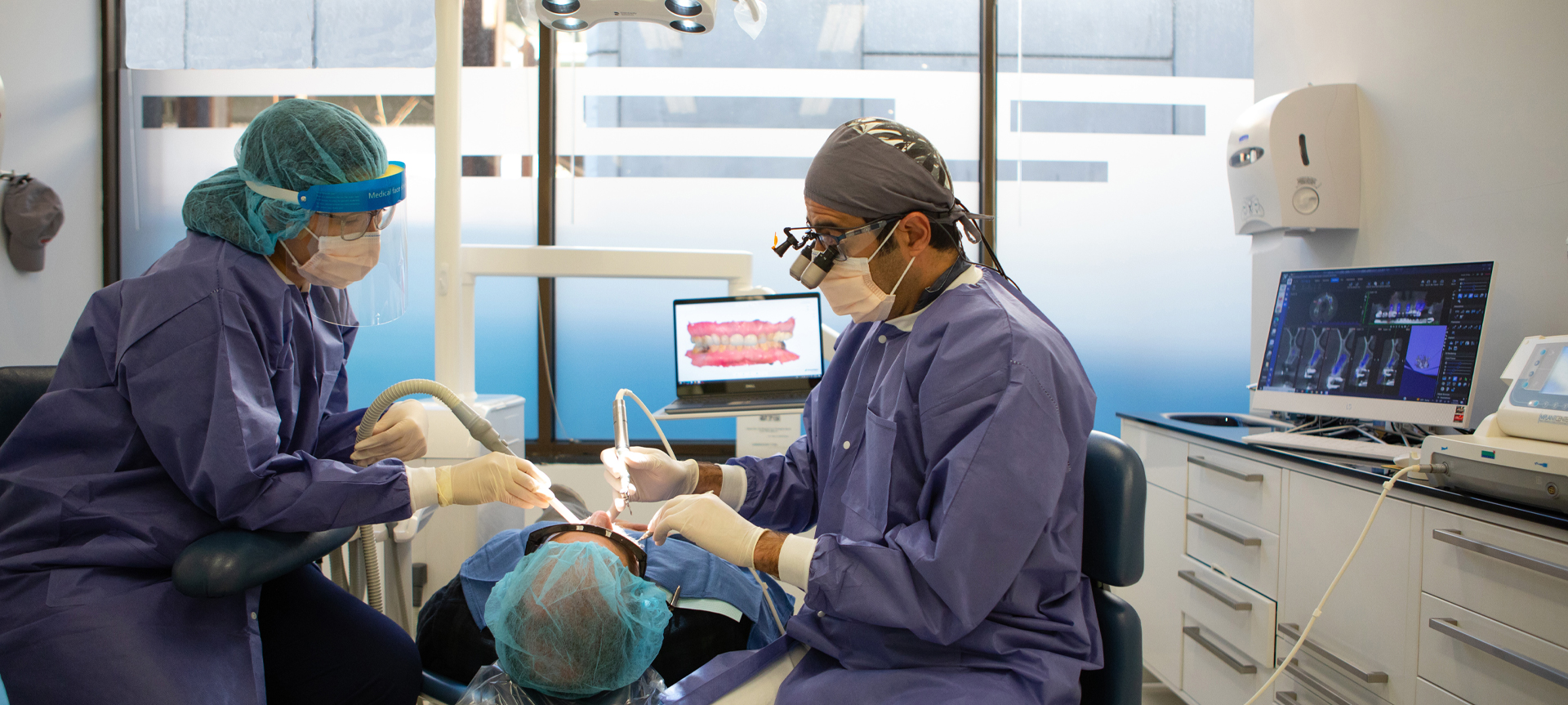
The indications for dental implants can vary. These can include:
• Trauma – any injury to the face can lead to the loss of the teeth. Simple trauma such as a fall or accident can result to the immediate loss of a tooth
• Caries or Decay – decay (also known as caries) is the number one reason for tooth loss and can occur at any age. If left untreated under an existing filling or crown it will cause the tooth to fail and require an implant
• Failing Root Canal – If left untreated, an infection from a failing root canal can lead to bone loss, complicating any future implant placement
• Infection – A lingering infection will begin to dissolve the bone that retains a tooth. The most common causes for infection are lingering caries, periodontal disease and failed root canals.
• Congenitally Missing Teeth – Ideally all your baby teeth will be replaced by strong adult teeth. In cases where this does not happen, an implant is the treatment of choice to replace the missing tooth
• Failing Crowns and Dental Restorations – All restorations have an inherent shelf life. Decay or caries can occur under the restoration resulting infection. An implant may be needed results in an extraction.
• Previously Extracted Tooth or Teeth – There are many reasons why a patient may have delayed replacing missing or extracted teeth. Even after many years implants can still be placed.
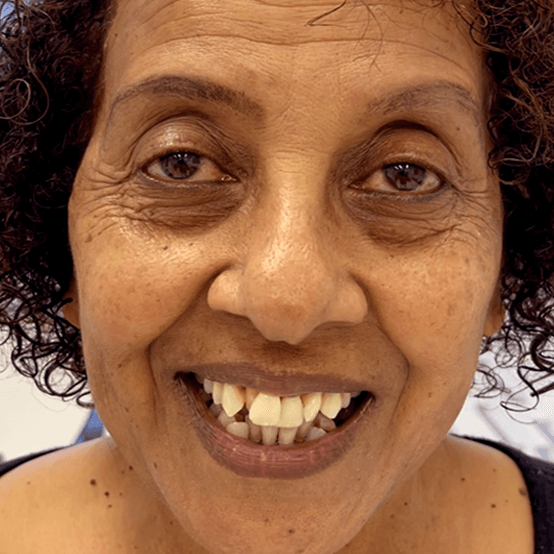
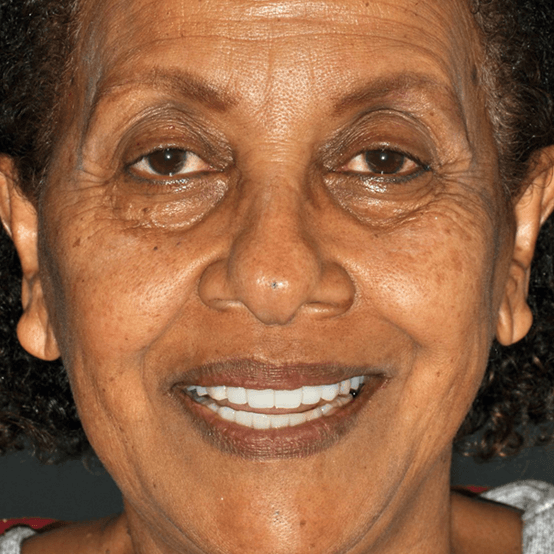
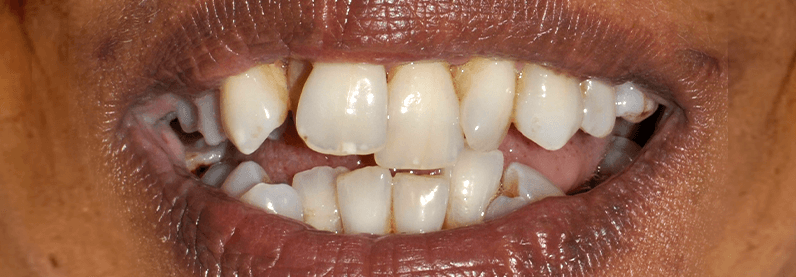
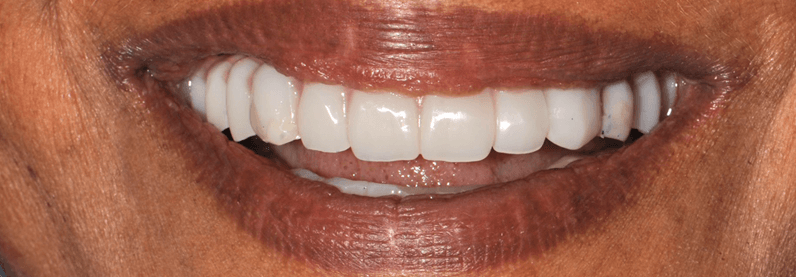
Full Mouth Implant rehabilitation with 6 implants on
the upper, 5 implants on lower.
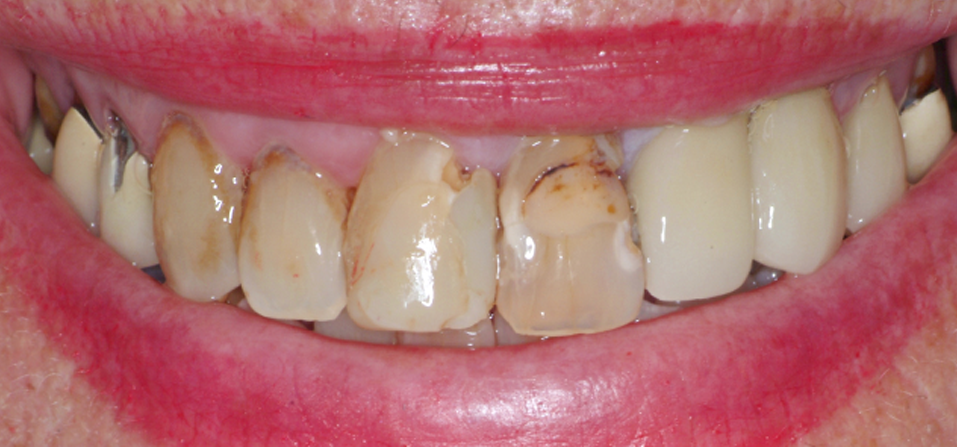
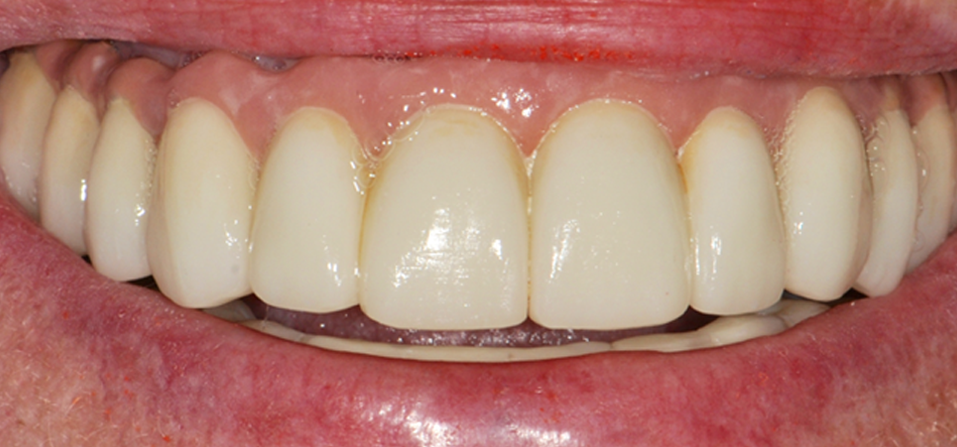
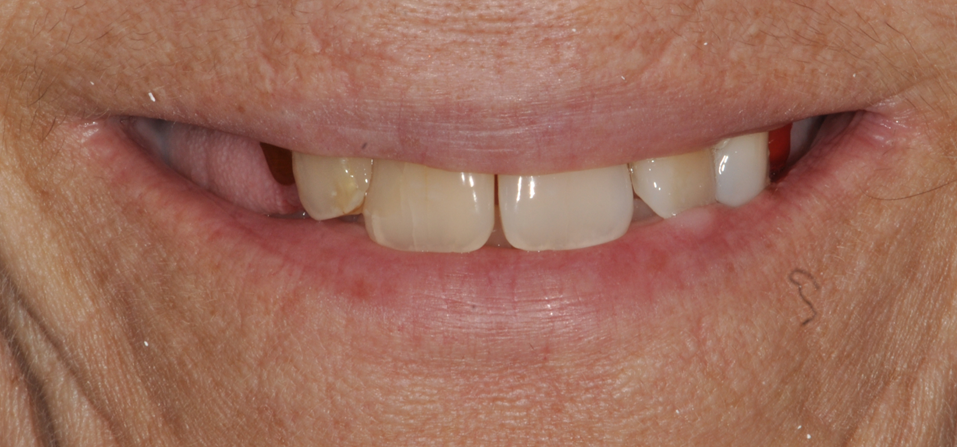
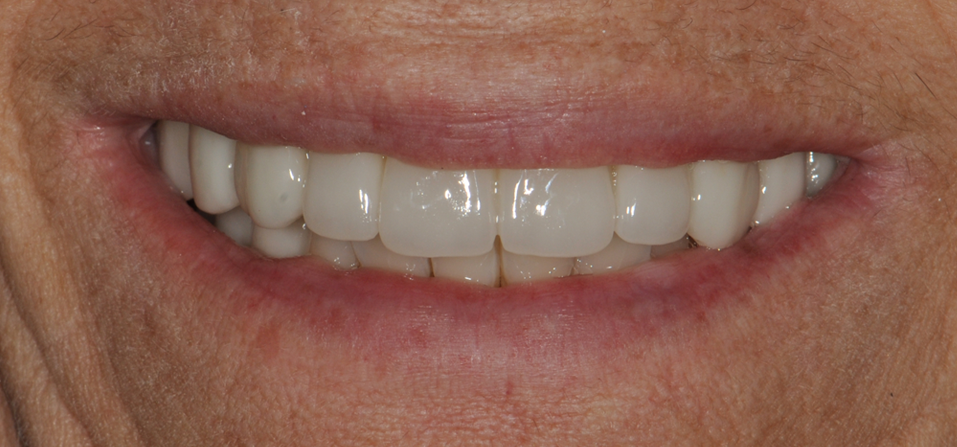
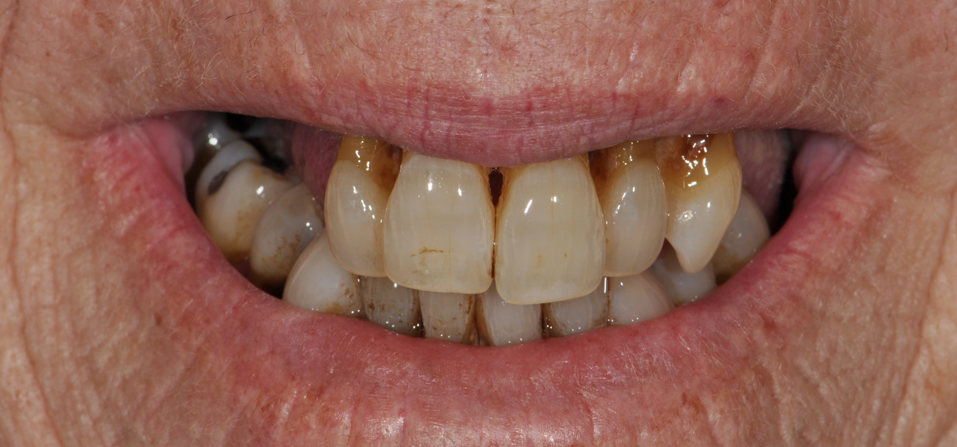
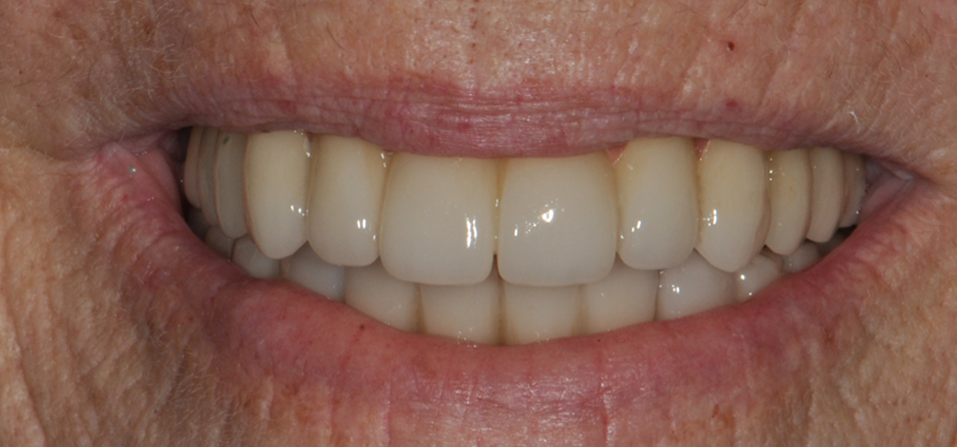
Full Mouth Implant rehabilitation, 8 implants on
the upper, 6 implants on the lower.
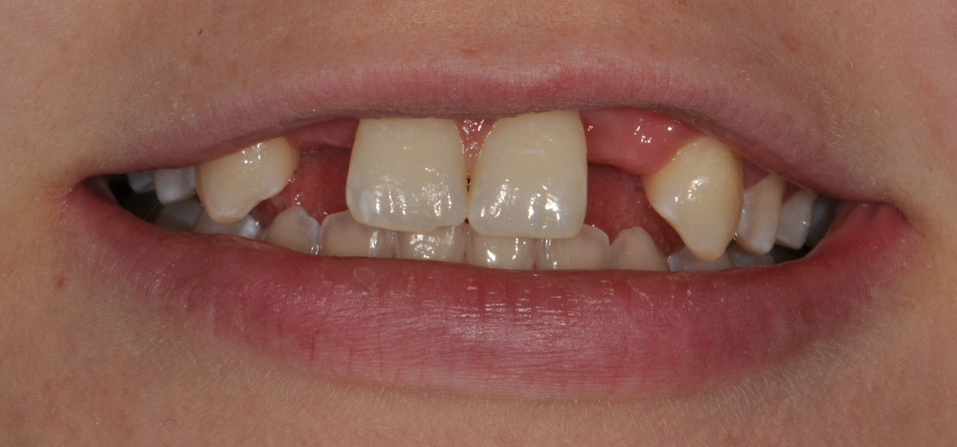
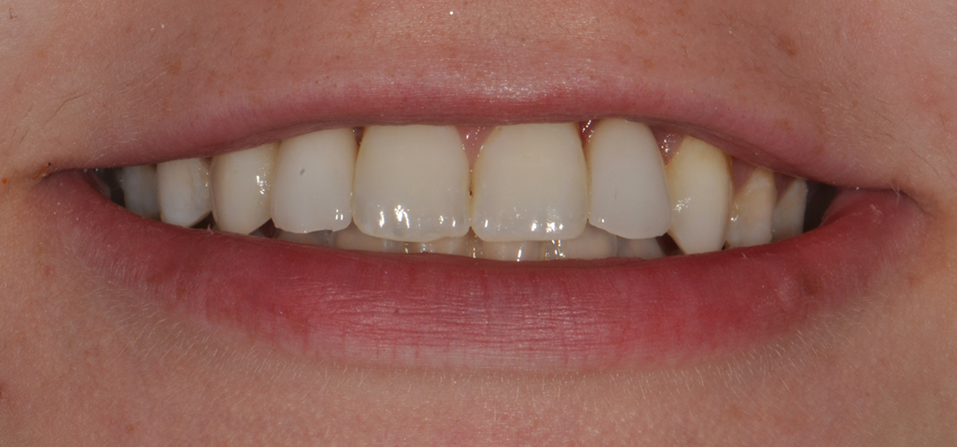
Replacing missing teeth with dental implants.
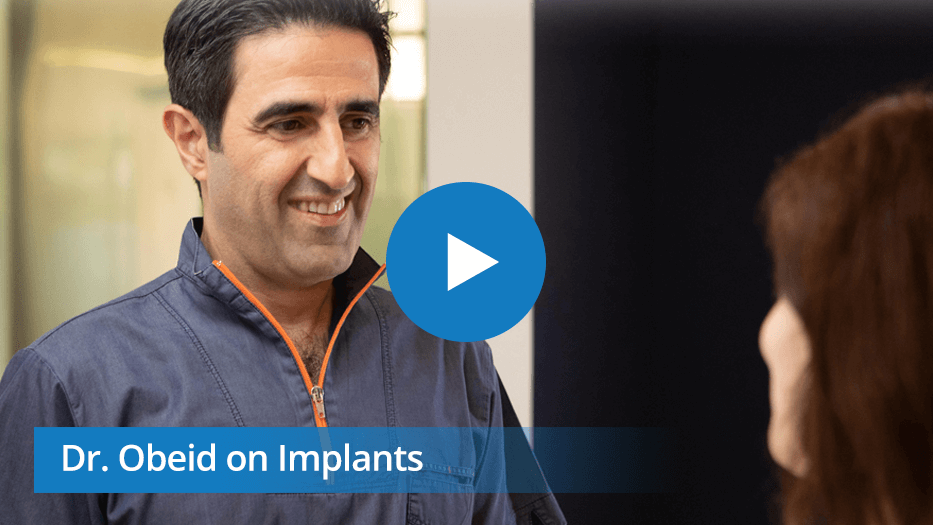

Dental Implants

Dental implants are a tooth replacement option. To understand what an implant it helps to
think of the dental implant in its three distinct parts:
As with any surgery, you should expect some amount of discomfort immediately following the dental implant placement. This ranges from mild to moderate in most cases and many patients easily regulate their pain with over the counter pain relievers such as acetaminophen or ibuprofen (Tylenol or Advil). If needed we can prescribe a stronger pain medication.
The bones of your jaw need stimulation to retain their size and shape. The bone of your
jaw gets this from adhering to the roots of your natural tooth. When a tooth or multiple
teeth are lost, the bone tissue of the jaw begins slowly disappearing around that area.
Over time this can alter the shape of the jaw and the fit of the dentures. An implant
replicates the roots of your teeth and maintains facial structure. Implants help maintain the
bone value, add to the the stability of dentures and provide a non removable option – fixed
bridges.
Your final restoration will mimic your natural teeth and most patients report significant
improvement with their eating, especially the types of foods that can be consumed with
their implant restorations
As with any surgery, you should expect some amount of discomfort immediately following the dental implant placement. This ranges from mild to moderate in most cases and many patients easily regulate their pain with over the counter pain relievers such as acetaminophen or ibuprofen (Tylenol or Advil). If needed we can prescribe a stronger pain medication.